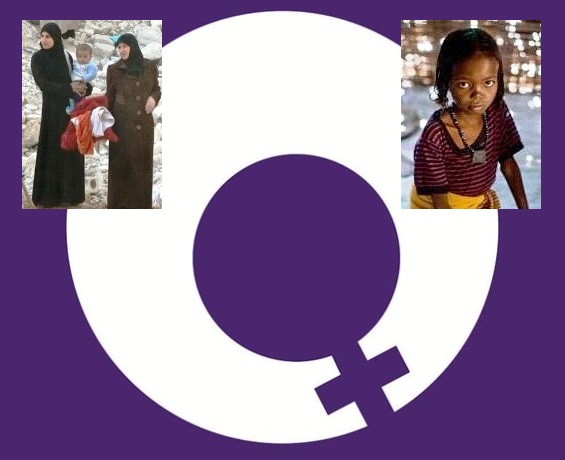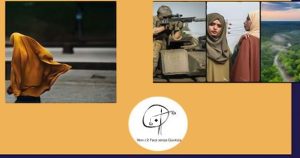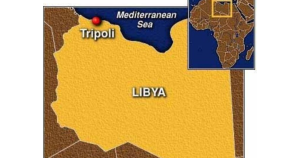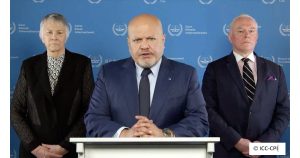Statement by Alvilda Jablonko, Director for Gender and Human Rights of No Peace Without Justice:
“Today the world is observing International Women’s Day, celebrating women’s achievements throughout history and throughout the world. This day is also an appropriate occasion to remember the too many gaps hindering – sometimes in a brutal and cruel manner – the process towards the full recognition and protection of women’s rights as universal human rights.
“In times of war, women as well as children are those who have to bear the major brunt of the abuses and human rights violations committed, as dramatically demonstrated by the conflict which ravages Syria. Since its inception, Syrian women and children have been a primary target of the violence – ranging from rape and other sexual- and gender-based violence to forced displacement, starvation and city blockades – perpetrated with ever-increasing frequency and brutality amidst a culture of almost complete impunity.
“After five years of failure by the international community to bring an end to the conflict in Syria, we renew our appeal to all States, and to all regional and international organisations, to demonstrate their commitment to human rights and particularly the rights of women by breaking the cycle of impunity that is ravaging the country. Providing accountability for the crimes and ensuring the participation of the most vulnerable and primary victims affected by them in this process need to become the centerpiece of any international effort on Syria to end the bloodshed and to bring justice for the Syrian people.
“On this International Women’s Day, No Peace Without Justice (NPWJ) and the Nonviolent Radical Party Transnational and Transparty (NRPTT), together with our Syrian partners, reaffirm our commitment to support the courageous Syrian women who despite being exposed to unspeakable horror and violence strive to play a significant role in the non-violent quest for a free, inclusive and democratic Syria. It is of critical importance that those who have suffered the most since March 2011 be heard and that women’s perspectives recognised as fundamental elements for the future of Syria, least they will face further repression by being silenced and further segregated by the dynamics of war.
“If women are disproportionately affected by the humanitarian and human rights disaster created by the dynamics of war, we should remind ourselves that also in times of peace women’s fundamental rights are at threat or violated, as demonstrated by the millions of girls worldwide who are subjected to female genital mutilation. The United Nations General Assembly (UNGA) had taken a first strong stance on this issue on 20 December 2012 by adopting Resolution 67/146 calling for the universal ban of this extreme form of discrimination and violence. The Resolution was hailed by the Ban FGM Campaign, a coalition of African and European NGOs created thanks to the initiative of No Peace Without Justice. In December 2014, UNGA Resolution 69/150 renewed this commitment, with an increased number of sponsoring countries and strengthened language.
“As called for by these breakthrough resolutions, NPWJ and the NRPTT have constantly stressed that the adoption and the enforcement of explicit and effective legislation, backed by sanctions, banning all forms of FGM is fundamental and crucial factors to successfully combat this form of gender-based violence, protect its victims and end impunity. It is now crucial to ensure that the political commitment expressed at the highest level turn into a concrete, efficient and coordinated action by all States where FGM is practiced.
“In that perspective, we are convening, together with the Senegalese Ministry of Women, Family and Childhood and in partnership with the Inter-African Committee on Traditional Practices Affecting the Health of Women and Children (IAC) and local NGOs, a Sub-Regional Ministerial Consultation on 26-27 April 2016 in Dakar, Senegal. This high-level event will gather ministers and representatives of international organisations as well as civil society activists and women’s rights groups from ECOWAS countries and Mauritania. Its purpose is to spur the political engagement to enact and enforce legislation that unequivocally prohibits FGM as a criminal offence as well as provide strong and clear legitimacy to the advocacy and educational work of local anti-FGM activists and women’s rights groups.
“If the UNGA resolutions can be considered milestones in the fight against FGM, they also just marked the beginning of a new chapter. It is now up to all States and all of us to work together to turn into practice its provisions at the national, regional and global level, so that the women and girls of tomorrow will be free from the threat of FGM”.
For more information, contact Alvilda Jablonko, Director for Gender and Human Rights, on ajablonko@npwj.org or Nicola Giovannini on ngiovannini@npwj.org or +32 (0)2 548-3915.
Documentation:
- Ban FGM Campaign
- Visit the special page dedicated to NPWJ’s Gender & Human Rights Program activities
- Visit the special page dedicated to NPWJ’s Syria Project on Justice and Accountability




